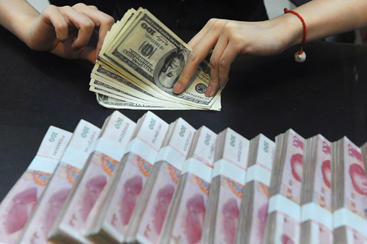
China’s international investment policy
Accession to the World Trade Organization (WTO) on 11 December 2001 was a watershed for China’s international economic relations. Joining the WTO meant that, after two decades of gradually opening its economy and markets, China formally accepted both the benefits and obligations of membership in a multilaterally negotiated rules-based regime governing international trade. The long march towards WTO accession – its pitfalls and challenges as well as the impressive surge in China’s import and export figures thereafter – have been well documented. But, somewhat in the shadows of these remarkable achievements in the field of multilateral trade policy, foreign investment has emerged as another important component of China’s international economic relations.
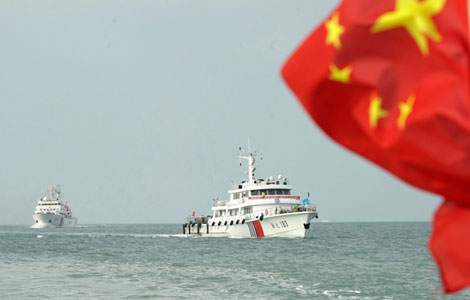
The outlook for continuing stability in the South China Sea
East Asia’s rapid economic and military development has captured global attention. Analysis of news coverage demonstrates that regional economies and tensions have been growing in tandem. The South China Sea has historically been of particular interest because of the number of conflicting claims on the islands and sea-lanes it encompasses. Of note, these conflicts have never escalated to a full-scale regional war. Direct extrapolation suggests that previous restraint in military interactions implies the nations involved do not consider the potential benefits sufficient to justify an upset to the balance of power. However, contemporary changes in economic and security conditions complicate the issue.
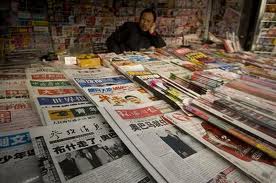
Media in China: Though sometimes driven to protest, China’s journalists remain committed to working within the political system
When journalists at the Southern Weekly newspaper in China’s Guangdong province went on strike last week against a local censor, Chinese citizens and the international media alike sat up and took notice. Microblogs amplified the journalists’ demands and helped make the incident a national topic of debate. Foreign commentators drew parallels to 1989, suggesting this could be the start of bigger protests. But the deal quickly reached between Communist Party officials and the striking journalists shows that the system of media control is still very resilient.

China’s Positive Spin on Africa
The lightning growth of Chinese media is part of the dramatic expansion of the presence of Chinese diplomats, peacekeepers, commercial actors (state-owned or private) and ordinary citizens that has been transforming the African continent in the last 10-15 years.
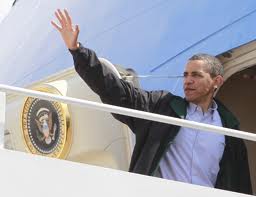
Flyover: Why Europe is no longer a top destination for Air Force One
After fresh re-election, Barack Obama skipped Europe. And no one is surprised. Instead, he made his first foreign trip to Burma (Myanmar), Cambodia and Thailand, thus clearly indicating the priorities of US foreign policy in the next four years.
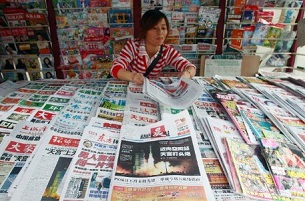
How to improve democracy in China? Start with a free press
Before joining the first cohort of students at the Blavatnik School of Government, I worked as a journalist for state-owned China Central Television, the biggest media outlet in China. Before that I spent four years working as a reporter and anchor for the Beijing Television Station, the local outlet for China’s capital city, also owned and operated by the government. Based on this, if I’m asked, about a single measure would strengthen democracy in my home country, I would firstly respond that you have to have more than one measure to reach that goal. However, if I can only choose one, I would definitely vote for free speech and an independent media.

The Best Defence is Dialogue
The recent visit to Beijing by the U.S. secretary of defense, Leon Panetta — which coincided with State Department statements that the U.S.-Japan security treaty would apply to the disputed Senkaku Islands — highlights the growing tension with China over America’s military presence in Asia, Chinese efforts to counteract it, and the dangerous misperceptions that can arise if defense strategy gets in the way of diplomacy.

Discontent in Paradise: Protests in Hong Kong
This weekend, Hong Kong, the newly declared “best city in the world”, celebrated the 15th anniversary of its return to China, and swore in its new leader, Beijing-backed Leung Chun-ying, the third Hong Kong Premier since its re-joining of the mainland. However, events that took place on Saturday and Sunday have indicated that the public mood within Hong Kong is far from universally jubilant. While the official media has been full to the brim of Chinese nationalism-oriented elation, on the Saturday evening many residents of Hong Kong displayed their increasing anger with the actions and dictates of the parent state by protesting outside of the Convention centre where Hu Jintao was due to inaugurate Leung. Protests continued throughout the Saturday …









